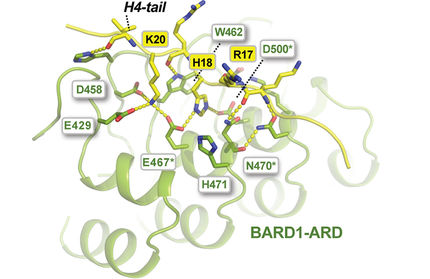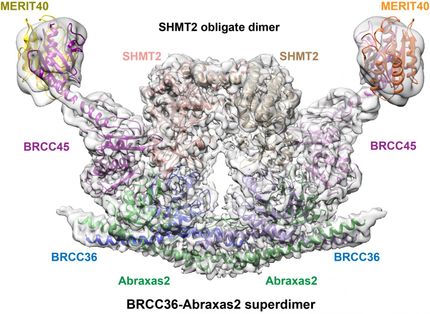Mystery of the missing breast cancer genes
Researchers from the University of Adelaide are hoping to better understand why the mutated genes for breast and ovarian cancer are not passed on more frequently from one generation of women to the next. That's despite a documented link between breast cancer genes and increased fertility in women.
Dr Jack da Silva from the University's School of Molecular & Biomedical Science says that because women who carry breast cancer genes are more fertile, in theory they have a greater chance of passing these genes on to future generations.
"A recent study in the United States found that mutations in the breast cancer genes BRCA1 and BRCA2 were directly linked with a 50% increase in the fertility of women, which is a huge number," Dr da Silva says.
"With such an increased fertility rate, you would expect to see a high frequency of these cancer-causing genes in modern populations, but in fact that is not the case - the frequencies are relatively low."
In a paper being published in the Proceedings of the Royal Society B, he argues that the so-called "grandmother effect" may in part be the reason behind this phenomenon.
"In an earlier study, researchers found that post-menopausal women create a 'grandmother effect' - that is, the longer they live, the more they are able to support their daughters and their grandchildren, thereby creating an environment in which more grandchildren are born.
"The reverse of this is that women who die earlier - such as from breast or ovarian cancer, which are usually post-menopausal - will no longer be able to support their daughters and grandchildren. This has the effect of limiting the number of grandchildren born, and therefore the chances of passing on the mutated genes from one generation to the next is also limited," Dr da Silva says.
However, the "grandmother effect" does not entirely negate the increased fertility caused by breast cancer genes, he says.
"Our change to today's industrial and technological age has been relatively rapid in human history. For most of our existence, we have been hunter-gatherers. During this time, female fertility was limited, and this may have reduced the increase in fertility caused by mutations of these genes."
Dr da Silva says further studies examining modern-day hunter-gatherer societies might shed more light on how and why the spread of these genetic mutations occurs across generations.
Organizations
Other news from the department science

Get the life science industry in your inbox
By submitting this form you agree that LUMITOS AG will send you the newsletter(s) selected above by email. Your data will not be passed on to third parties. Your data will be stored and processed in accordance with our data protection regulations. LUMITOS may contact you by email for the purpose of advertising or market and opinion surveys. You can revoke your consent at any time without giving reasons to LUMITOS AG, Ernst-Augustin-Str. 2, 12489 Berlin, Germany or by e-mail at revoke@lumitos.com with effect for the future. In addition, each email contains a link to unsubscribe from the corresponding newsletter.


















































